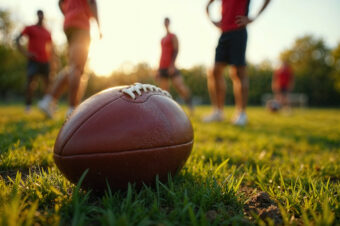Energy Endangerment: Are All Energy Drinks The Same?
Health & FitnessLEVELUP INSIDERS February 13, 2012 Mo Mortazavi 0
Nutrition | Dr. Mo
We have all seen the explosion of energy drinks in the last decade. With many new brand names such as Red Bull, Rock Star and Monster becoming common fixtures at the grocery store, are they all the same?
Use of energy drinks has also dramatically increased, especially in the pediatric population.
Young athletes and students are looking for a boost of energy to help them be the best they can be. As a result, energy drink producers have targeted youth to marketing their products.
In a recent study, two-thirds of all high school students admitted to having used energy drinks. Although caffeine is the most common stimulant in these drinks, many other stimulants are used without any studies to support their efficacy or safety.
Many athletes have reported a sense of increased vigor, stamina, and focus with energy drinks. Studies have shown some improved concentration and performance with mild to moderate caffeine consumption in adults.
However, no evidence suggests this in the pediatric population. Multiple studies have shown significant side effects with even mild caffeine consumption in kids.
Caffeine side effects include such as jitters, anxiety, heart palpitations, upset stomach and insomnia.
With excessive consumption, potential serious side effects such as dehydration, heart arrthymias and catastrophic cardiac events can occur.
Stimulants such as methylhexanamine, ephedra and a number of herbal extracts are not well studied or regulated by the FDA and could pose serious and potentially lethal side effects.
Despite this information, and the recent ban of a number of these stimulants…
every year healthy young athletes die due to stimulant use from energy drinks.
The FDA recommends no more than moderate consumption of caffeine in adults, which is equivalent to two to three cups of coffee a day. The FDA also deems levels above 400 mg of caffeine unsafe.
Typically energy drinks that our on the market have 100 to 300 mg of caffeine, with some exceeding 500 mg, compared to 34 mg in a can of Coke.
The National Collegiate Athletic Association (NCAA) requires urine tests for caffeine and has banned athletes with high levels.
The American Academy of Pediatrics (AAP) recommends no caffeine use in those under the age of 18, in particular during sports given the increased risk of dehydration and sudden cardiac events when activity is combined with stimulant use.
In general, young athletes should stay away from energy drinks before sporting events or exercise.
Instead, focus on keeping well hydrated, getting at least eight hours of sleep, and maintaining a complete and diverse diet with fresh foods, whole grains, fruits and vegetables.
Lack of energy can be related to poor caloric intake, iron deficiency, electrolyte imbalances and vitamin deficiencies.
If you have concerns about a dietary deficiency, discuss this with your doctor. It is critical to check the ingredients of all energy drinks as they may contain additional stimulants that may be dangerous despite being available at your local grocery store.
Nutrition | Dr. Mo Mortazavi
Check out his articles in the digital edition of SportStars Magazine… Energy Endangerment
Previous Article… Skeletal Stress
Mo Mortazavi
Dr. Mortazavi received his medical degree from the University of California, Davis, where he also completed his pediatrics residency. He then earned a fellowship in pediatric sports medicine at Children’s Colorado in Denver. While there, he focused on musculoskeletal injuries, concussion care and pediatric fractures. Since then, Dr. Mortazavi has expanded his practice to include exercise prescriptions for athletes with chronic illness, sports nutrition and injury-prevention programs.









No comments so far.
Be first to leave comment below.